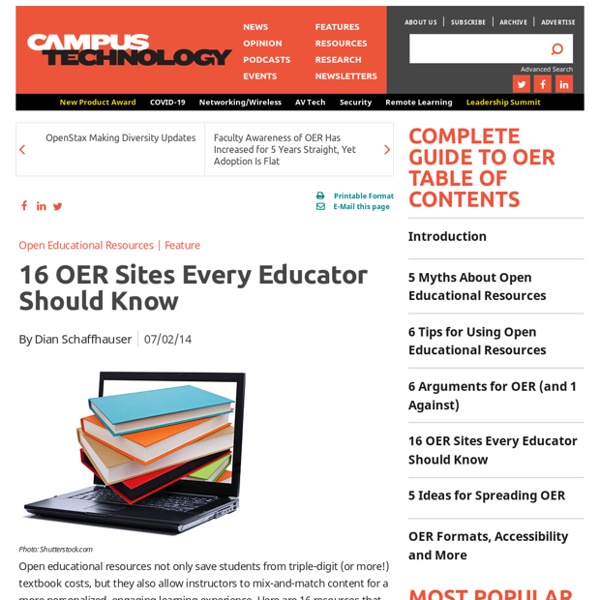SELearn Educator Portal
We know that materials matter. Mounting evidence suggests that providing teachers with access to high-quality, standards-aligned instructional materials and curriculum-based professional learning can result in improvement in student outcomes, making this a research-based school improvement strategy. More about this research here. For a detailed overview of high-quality instructional materials and professional learning, along with tools to see if your materials are aligned to standards, visit the new Instructional Materials and Professional Learning page. WISELearn provides a centralized location for connecting Wisconsin educators and sharing classroom and professional learning resources. WISELearn Resources Library is the repository that holds these classroom and professional learning resources.
5 Must-Have Google Search Tips for Students
Most of us begin any simple quest for knowledge with a Google search. So it makes sense that more serious searches might start there, too. But is Google OK for formal research? That depends. It’s still best to combine Googling with other forms of research, like visiting a library or using an academic database. Essential Tips for Google Research 1. Normally, Google will take a look at the set of words you type in, then try to find matches based on those words -- not necessarily in the order you type them. Example: Say you want to know who wrote something you'd like to cite: You'll get much better results for the citation if you put it in quotation marks and look for an exact match. Another use case: Found a good quote in the novel you're reading for class? Bonus: You can also use this as a tool for fact-checking. 2. By typing “OR” (in capital letters) between search terms, you're telling Google to look for matches to either term. 3. 4. You can even combine this tip with others. 5.
Open Educational Resources (OER)
We use cookies to give you the best experience and to help improve our website. How we use cookies. Thanks for letting me know Open Educational Resources (OER) Explore this resource site—a collection of all EDUCAUSE resources related to open educational resources (OER) in higher education. Web Sites with OER resources The Community College Consortium for Open Educational Resources - CCCOER is a joint effort by the OER Center for California, Foothill-De Anza Community College District, the League for Innovation in the Community College and many other community colleges and university partners to develop and use open educational resources (OER) and especially open textbooks in community college courses. OpenStax is a non-profit digital ecosystem serving millions of users per month in the delivery of free educational content to improve learning outcomes. Free Online Course Materials is a California State University MERLOT collection of over 35,000 open course materials. Subscribe To Topic
Open Educational Resources (OER): Resource Roundup
OER, a part of the global open content movement, are shared teaching, learning, and research resources available under legally recognized open licenses -- free for people to reuse, revise, remix, and redistribute. Why are OER important? High-quality OER can save teachers significant time and effort on resource development and advance student learning inside and outside the classroom. Further, open sharing of resources has the potential to fuel collaboration, encourage the improvement of available materials, and aid in the dissemination of best practices. video How to Find OER Open Lesson Plans, Courses, and Activities 5-Minute Film Festival: 10 Sources for Free Lesson Plans, by Amy Erin Borovoy (2013) Exploring free lesson planning resources can be overwhelming. Where MOOCs Miss the Mark: The Student-Teacher Relationship, by Matt Levinson (2014) Massive open online courses (or MOOCs) are an outgrowth of the OER movement. English Language Arts Mathematics Science and the Environment The Arts
75 Digital Tools and Apps Teachers Can Use to Support Formative Assessment in the Classroom
There is no shortage of formative assessment strategies, techniques, and tools available to teachers who use formative instructional practice in their classrooms. Here is an extensive list of 75 digital tools, apps, and platforms that can help you and your students use formative assessment to elicit evidence of learning. We didn’t just add any old tool to this list. Supports formative instructional strategies and ways to activate learners to be resources for themselves and peersIs free or awful close to it (under $10 per year, where possible)When possible, both students and teachers can take the activator role (sometimes teachers need to get things started) Before you dig into the tools, I encourage you to spend some time thinking about exactly what you want to accomplish with your students. The tools Learn more To get the most out of formative instructional strategies, also check out our formative practices workshops.
OER
50 Activities To Promote Digital Media Literacy In Students
50 Challenging Activities To Promote Digital Media Literacy In Students by Terry Heick Literacy is changing–not at its core necessarily, but certainly at its edges as it expands to include new kinds of “reading.” Digital media is quickly replacing traditional media forms as those most accessible to most 21st century learners. The most fundamental pattern of formal academia is to read something and then write about it. Some of these tasks will look familiar, especially to English teachers. Also, I know that medium is the singular form and media the plural, but to me the connotation of the word medium hints at the form (e.g., film, text, video), whereas the media seems more apt to refer to a specific example of a media form (Schindler’s List, The Odyssey, Charlie Bit Me). You also might notice that many of them apply to both traditional and digital media. I’ll be updating this list, revising it to add better examples, alter clunky phrasing, and so on.
What We Offer -



